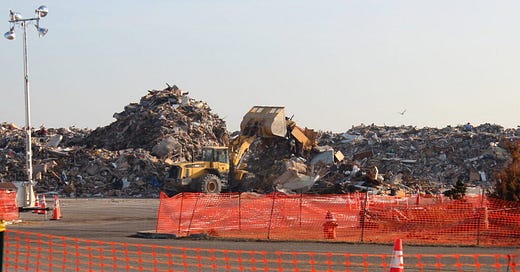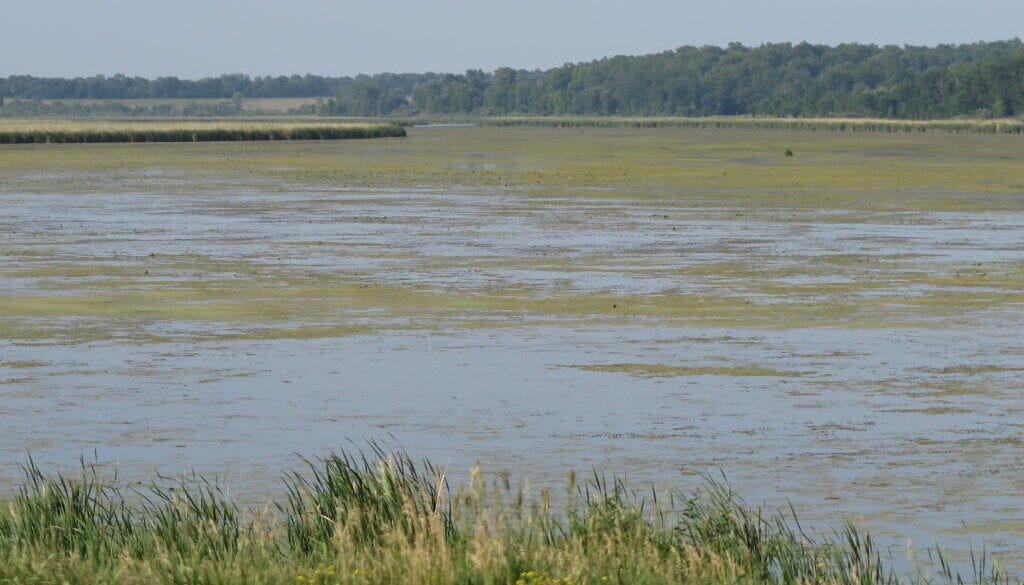Must-read recap: The New Lede's top stories
EPA proposes adding PFAS to hazardous waste cleanup law; cancer in the corn belt sparks actions to fight farm chemical contamination.
EPA proposes adding PFAS to hazardous waste cleanup law
Federal regulators today announced a proposal to update the definition of hazardous waste in the Resource Conservation and Recovery Act (RCRA) to include a class of chemicals known as PFAS, a move designed to help ensure cleanups of these so-called “forever chemicals” at hazardous waste facilities.
The Environmental Protection Agency (EPA)’s proposed rules will also add nine per- and polyfluoroalkyl substances (PFAS) to a list of substances in the act that are considered in assessments of facilities used to treat, store, and dispose of hazardous waste. The updates will strengthen protections for communities located near the 1,740 hazardous waste facilities across the US, the Environmental Protection Agency (EPA) said in a statement.
“Today’s announcement by the EPA will ensure that quick action can be taken to clean up PFAS and will send a powerful signal to industry to be good stewards of their PFAS wastes,” said Scott Faber, senior vice president for government affairs at The Environmental Working Group nonprofit in a statement. (Read the rest of the story.)
Cancer in the corn belt sparks actions to fight farm chemical contamination
When directors of the public water utility in Des Moines, Iowa, went to court in 2015 to try to stop toxic farm nutrients from contaminating the city’s drinking water, they knew the federal lawsuit they filed would be seen as not just a desperate step to protect public health, but also a brazen act of defiance that would provoke a ferocious response from Iowa’s powerful farm and political leadership.
As they anticipated, a cohort of agricultural interests joined then-Gov. Terry Branstad in beating back the lawsuit, which Branstad declared an act of “war on rural Iowa.” Des Moines Water Works alleged that drainage districts in three Iowa counties had polluted the Raccoon River with nitrates, forcing costly efforts by Des Moines to render the polluted water safe for drinking. The case was dismissed in 2017 after a court ruled that Iowa law immunizes drainage districts from damage claims.
It was the last time a government entity in Iowa or any other Corn Belt state made a focused attempt to reduce human exposure to suspected cancer-causing commercial fertilizers and a flood of livestock manure that routinely drains from farm fields into groundwater, streams, and rivers.
Until now.
Prompted by compelling research showing that cancer-related diseases and deaths are climbing as contamination from common agricultural chemicals and manure increases in key farm states, lawmakers and health officials in Iowa, Minnesota, and Nebraska are pursuing an array of new strategies aimed at reducing the risks to human health presented by the ongoing farm-related contamination. (Read the rest of the story.)
(This report, co-published with Circle of Blue, was made possible by an investigative reporting fellowship awarded by the Alicia Patterson Foundation and the Fund for Investigative Journalism. It is part of an ongoing series looking at how changing agricultural policies are affecting human and environmental health.)




